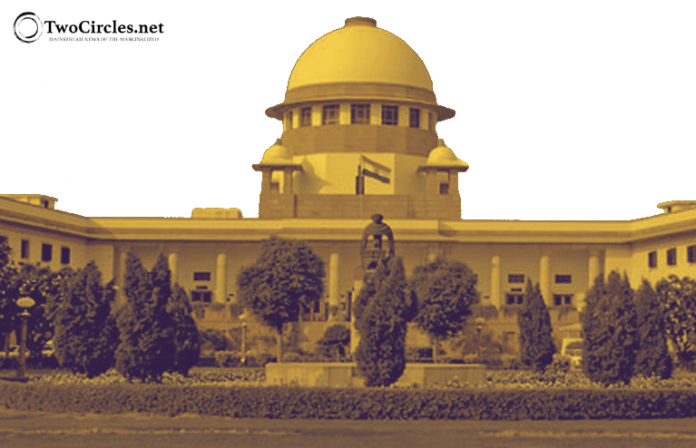Supreme Court said that additional restrictions cannot be imposed on the right to free speech of ministers, MPs and MLAs in a case that relates to then UP minister Azam Khan’s remarks on gang rape.
Sana Ejaz | TwoCircles.net
NEW DELHI — The Supreme Court on Tuesday held that no additional restrictions other than those prescribed under Article 19(2) of the Constitution can be imposed on the right to free speech of a citizen, and emphasized that restrictions under Article 19(2) are exhaustive.
The court said that no additional restrictions should be imposed on the right to free speech of lawmakers, MPs, and MLAs.
The constitution bench judgment delivered the verdict on whether restrictions can be imposed on the right to freedom of speech and expression of a public functionary.
A five-judge constitution bench headed by Justice S.A. Nazeer and comprising Justices B.R. Gavai, A.S. Bopanna, V. Ramasubramanian, and B.V. Nagarathna, delivered the verdict. However, Justice Nagarathna delivered a separate judgment.
“The grounds…in Article 19(2) for restricting the right to free speech are exhaustive… additional restrictions not found in Article 19 (2) cannot be imposed on the exercise of the right conferred by Article 19 (1) (a)”, said Justice Ramasubramanian while reading the majority judgment.
The top court said a minister’s statement can’t be vicariously attributed to the government and the minister is liable for the statement himself.
Justice Nagarathna said hate speech strikes at the root of equality and fraternity and added that fundamental duties could be used to check disparaging speeches and promote harmony among citizens. The court cannot impose any greater/ additional restrictions on the fundamental right of free speech of such public functionaries.
By a 4:1 majority, the judges said that statements made by ministers, MPs, and MLAs, even if traceable to the government, cannot be vicariously attributed to the government.
The case originated from a statement made by then-UP minister Azam Khan about the victim of gang rape. The top court was hearing a plea filed by a man whose wife and daughter were allegedly gang-raped.
On the night of July 2016, a group of highway robbers stopped the car of a Noida-based family and sexually assaulted a woman and her daughter after dragging them out of the vehicle at gunpoint in Uttar Pradesh’s Bulandshahr.
Samajadi Party leader and then cabinet minister Azam Khan had called the incident nothing but a political conspiracy against the Uttar Pradesh government.
The plea also sought the lodging of a case against Khan in connection with his controversial statement.
In December of that year, Azam Khan, told by the top court, apologized. However, the judges observed that the apology did not appear to be unconditional because he had used words like “if” and “then”. Azam Khan, represented by Kapil Sibal, tendered an unconditional apology and expressed his sincere remorse.
In 2017, the Supreme Court referred to a Constitution Bench questioned, whether a high functionary, such as a Minister of a State, can make comments that potentially create distrust in the minds of the victims of a crime about the fairness of an investigation.
Sana Ejaz is an independent journalist from Bihar. She tweets @SanaEjaz_


